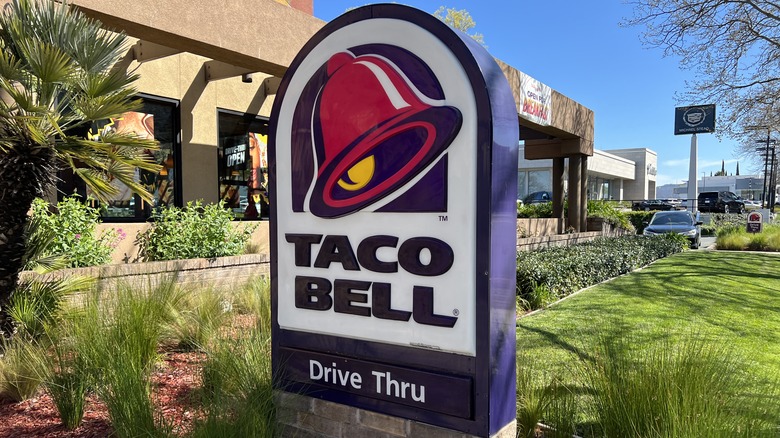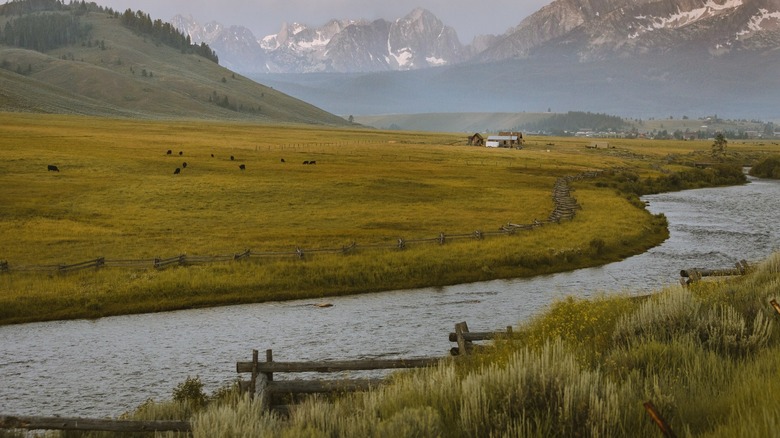Taco Bell Is Taking Steps To Make Its Beef More Sustainable. Here's How
From goals like increasing the number of recycled materials used in packaging to reducing water usage, the fast food industry has become focused on sustainable practices that positively affect the environment. To do its part, Yum! Brands, the parent company of KFC, Pizza Hut, Taco Bell, and The Habit Burger Grill, developed goals in 2021 to reduce emissions by 46% by 2030, to reduce water usage, and to transition to 100% cage-free eggs. Specifically, Taco Bell has formulated plans to improve sustainability in its beef supply chain.
In partnership with Cargill and the National Fish and Wildlife Foundation, the well-known purveyor of tacos, nachos, and Mexican pizza has pledged to work toward the restoration of habitats and expansion of sustainable farming practices to combat climate change. Between Taco Bell and Cargill's investment of $2 million, as well as a matching amount from federal funding, the sustainability effort will put a total amount of $4 million toward supporting producers of beef.
What will the partnership improve?
The partnership's goals are twofold, with a focus on both conservation and regenerative practices. Grants from the funding will be used to help ranchers throughout the Intermountain West develop and implement strategies that will improve biodiversity and river water quality and, ultimately, restore a vast amount of land throughout multiple states, including Colorado, Idaho, Montana, Nevada, Oregon, Utah, and Wyoming.
"Taco Bell, in partnership with Cargill, will help organizations working directly with ranchers in the Intermountain West to implement important changes, providing better habitat for wildlife, increasing carbon sequestration, and creating a more resilient ecosystem for people and for the species that depend on these rangelands for their very survival," says Jeff Trandahl, executive director and CEO of NFWF.
From May 4 through August 3, applications for the grant money can be submitted by organizations seeking to help ranchers implement the practices starting in 2024.

